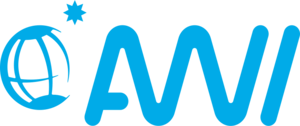
The Alfred-Wegener-Institute (AWI) is one out of 19 Helmholtz Centres in Germany and pursues long-term research goals of the federal government on its own responsibility. The guideline this work is the multidisciplinary research programme whose specific goals and quality are defined and reviewed. Nowadays, the AWI is one of the world's recognized centres of polar and marine research since its foundation in 1980 and makes significant contributions to Earth system and climate research in the Polar Regions and coastal waters. The AWI hosts and operates large research platforms and facilities, such as ships, air planes and research stations in the North Sea and the Arctic and Antarctic.
Since 2011 the AWI is also involved in international projects dealing with dumped munition at sea. Within the projects AWI researcher are focussing on the biological effects of marine organisms being exposed to dissolve munition compounds. In REMARCO, AWI is the lead partner and will coordinate the ship expeditions to the German munition hot spots areas in the southern German Bight.
Partner in:
Ongoing: 2021 - 2024
Completed: 2018 - 2023
Completed: 2018 - 2023
Completed: 2014 - 2020
Completed: 2007 - 2013

Since 2011, north.io, based in Kiel, Germany, has established itself as a leading expert in the organization and management of geospatial data on land and sea.
The team of 70 experts develops highly scalable software architectures based on microservices and cutting-edge programming languages. The digital tools developed by north.io are designed to generate knowledge, empowering government, and business clients to understand their geospatial data and make informed decisions, tackling challenges such as climate change, energy transition, and digital transformation. With the Software-as-a-Service (SaaS) approach, north.io ensures that geospatial data is easily accessible, quickly discoverable, shareable, and understandable.
North.io has been participating in and spearheading research projects in their domain of expertise. There is a constant strife to refine our technologies through extensive R&D projects as well as provide momentum for global transformation processes and innovation.
Partner in:
Completed: 2018 - 2023
Completed: 2018 - 2023
Completed: 2019 - 2022
Completed: 2014 - 2020
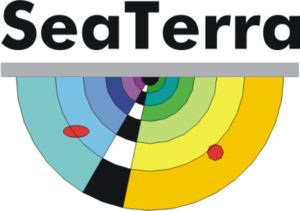
SeaTerra is a highly specialized company for geophysical surveys and UXO clearance, onshore and offshore. With over 20 years of international experience in the field, SeaTerra is one of the leading companies in Europe. Offshore services include marine surveying, clearance of cable and pipeline routes, wind-farm areas and munition dumping sites in all German and international waters.
With a strong in-house R&D department, SeaTearra is constantly developing and improving methods and technologies. In 2021, SeaTerra has started to engineer its own line of remote controlled and autonomous subsea crawlers ready to be deployed in the pilot areas of REMARCO.
Partner in:
Ongoing: 2021 - 2024
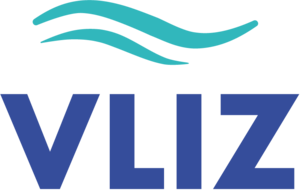
Flanders Marine Institute (VLIZ) is an independend research institute in Belgium, funded by the Flemish Government and the Provence of West-Flanders. The mission of VLIZ is clear: to strengthen science-based knowledge about our coasts, seas and the ocean and share it as widely as possible. VLIZ operates the latest marine technologies, like various marine robotics and state-of-the-art coastal research vessels, and provides access to these tools to both national and international researchers. Besides science support, VLIZ provides policy information and strengthens innovation in industrial partners active in the Blue Economy of Flanders. Since 2018, VLIZ also initiates and performs their own research activities on topics related to climate change and ocean health.
In the last five years, VLIZ has been involved in several national and international projects related to underwater munitions. Within these, VLIZ has deployed their expertise in underwater archaeology, geological surveys, and microbial analyses. In REMARCO, VLIZ will search for bacteria that are able to degrade TNT, thereby acting as an indicator species for the presence of this pollution. VLIZ will also provide samples for the evaluation of the food chain; as well as investigate the effect of detonations at sea to assess the chemical contamination derived from this mitigation technique.
Partner in:
Completed: 2020 - 2023
Completed: 2018 - 2023
Completed: 2018 - 2023
Completed: 2019 - 2022
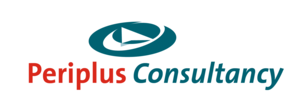
At Periplus, we specialize in IT, data management, and construction support for the Energy Industry, including Oil and Gas and Wind farms. Our expertise also extends to in-house processing of hydrographic and geophysical data, consultation on various hydrographic, geophysical, and archaeological projects, and the development of solutions within the marine environment. We handle data related to the seafloor and its sub-surface, processing, analysing and synthesising them to create comprehensive maps, charts, and reports.
Since 2018, Periplus has been actively involved in international projects addressing the issue of dumped munitions at sea. In these projects, our primary focus is on managing and standardizing project data. To achieve this, we utilize our geospatial data management application, Gr:Dit. Through Gr:Dit, both the standardized dataset and the original files are made accessible to REMARCO partners, enabling them to utilize the data in their studies and risk assessments effectively.
Partner in:
Completed: 2018 - 2023
Completed: 2018 - 2023
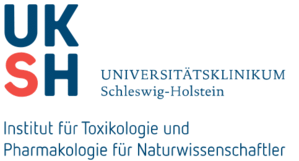
The Institute of Toxicology and Pharmacology for Natural Scientists, part of the University Medical School Schleswig Holstein (UKSH) and the medical faculty of Kiel University (CAU), is the only university institute for toxicology in northern Germany. Research focuses on the molecular causes of diseases caused by pollutants, also considering genetic predispositions and lifestyle factors.
The institute has been researching the impacts of dumped and submerged munitions on humans and the marine environment in various projects since 2009. In addition to developing and improving mass spectrometry-based analytical methods for the detection of energetic compounds (EC) in marine samples down to the sub-nanogram range. In REMARCO, UKSH collects and analyses data on munition compounds from project sampling campaigns and from the literature to determine toxicological hazards to the marine ecosphere as well as to humans when reaching health risk-based levels that have been established for edible seafood. The aim is to bridge the gap between our high-quality analyses of toxic EC in sediments, water samples and different kinds of biota such as fish and blue mussels towards the final toxicological risk assessment with regard to the safety of the environment and the human seafood consumer. This will be achieved through discussions and exchanges with competent authorities (EFSA, BfR and others).
Partner in:
Ongoing: 2021 - 2024
Completed: 2018 - 2023
Completed: 2018 - 2023
Completed: 2019 - 2023
Completed: 2016 - 2019

The German Maritime Museum/ Leibniz Institute for Maritime History is one of eight research museums of the Leibniz Association in Germany. As a museum right on the dyke, its exhibitions look at the past, present and future from the sea using ships as examples. Because ships change the world: they drive global interdependencies in society, politics, science and the environment. In its research projects and exhibitions, the DSM also aims to highlight the changes in the oceans and the sustainable use of the sea.
To this end, a travelling exhibition about the "North Sea Wrecks" project was developed under the direction of the DSM and toured several European cities. Parts of the travelling exhibition will be on display in the new permanent exhibition "Ship Realms – The Ocean and Us" in the section “Ship and Environment” and will continue to raise awareness of the hazards of war wrecks and munitions remnants in the sea. The aim is to give the topic of corroding munitions and leaking toxic chemicals in the sea a sustainable and long-lasting presence.
Partner in:
Completed: 2018 - 2023
Completed: 2018 - 2023
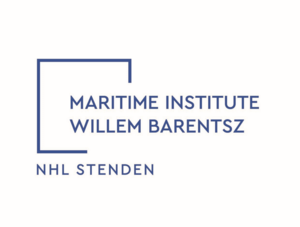
NHL Stenden is a university of applied sciences with its headquarters in Leeuwarden, the Netherlands. NHL Stenden offers a wide range of bachelor and master studies, covering the domains of engineering, health, business, hospitality and law. The Maritime Institute Willem Barentsz (MIWB) was established almost 150 years ago. MIWB is part of NHL Stenden and is based on the island of Terschelling between the North Sea and the Waddensea. At MIWB students are educated and trained on bachelor and master level to become maritime officers, naval architects or hydrographic surveyors. MIWB has a multidisciplinary maritime research group with experts in shipbuilding, maritime operations, data science and security and maritime law.
Partner in:
Completed: 2018 - 2023
Completed: 2018 - 2023

The Institute for Natural Sciences (RBINS) is one out of 10 Royal Institutes in Belgium, that all depend on the Federal Science Policy and pursues long-term research goals to support and inform the federal government in its decision-making. More than 200 scientists and dozens of scientific collaborators covering a wide range of disciplines from biology, taxonomy and oceanography to geology, palaeontology and anthropology (benefiting from vast collections of almost 38 million specimens) support national and international decision-makers with their scientific expertise.
Its mission is to provide the scientific community, public authorities and civil society with relevant, high-quality science, useful advice and an attractive discovery of nature, its long history and its sustainable management. It does so by:
- producing high-quality, relevant science: complex issues require well-founded, up-to-date knowledge;
- maintaining, enriching and opening up our research infrastructures, such as collections, databases and models: reliable forecasts require certified long-term data;
- Linking research to action and governance as much as possible: increasing the impact of scientific results requires relevant and targeted communication, capable of providing independent advice at the appropriate level;
- to increase the knowledge and understanding of citizens, particularly through the Museum, so that they can make informed choices about their lives and their future.
Since 2011 the RBINS lab ECOCHEM is involved in (inter)national projects dealing with dumped munition at sea. Within the projects our researchers are focussing on the distribution and availability of munition compounds in sediment and (pore)water to extremely low concentrations (ng/kg or subng/L level); in the framework of REMARCO, this is expanded quantification in biological matrices in support of studies looking at the effects on marine organisms. In REMARCO, ECOCHEM is a partner, instead of the North Sea Wrecks project where it was a subcontractor only. It will contribute to ship expeditions to the Southern Bight and beyond, inviting project partners to join the expedition and collects or distributes samples and data from the expeditions.
Partner in:
Completed: 2011, 2015, 2017 - 2024
Completed: 2020 - 2023
Completed: 2018 - 2023
Completed: 2018 - 2023

Founded in 2011, EXPLOAD is an independent consulting firm specializing in explosive materials. The company distinguishes itself with a niche focus on safe handling and disposal, particularly concerning abandoned explosive devices. Expload offers a range of services including pre-investigations, risk analysis, and educational courses aimed at promoting safety and compliance within the industry and politics. EXPLOAD's aim is to navigate their clients though regulatory complexities and ensure responsible management of explosive materials.
